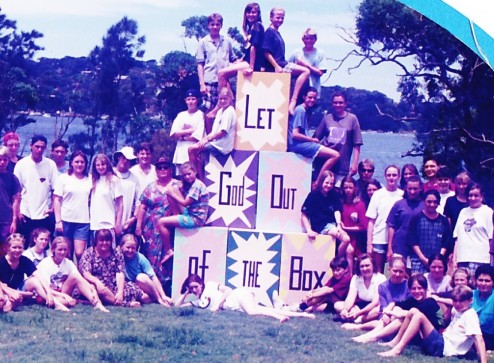 Christmas is full of stories and boxes, as are our lives. Every day, in every interaction, and in almost every thought, we seek to put the things we see, hear, smell, taste or feel in categorical boxes, and attach stories to them.
Christmas is full of stories and boxes, as are our lives. Every day, in every interaction, and in almost every thought, we seek to put the things we see, hear, smell, taste or feel in categorical boxes, and attach stories to them.
For a simple example think about the smells when your mum is cooking dinner – attached to that smell might be a story about the future taste and the soon-to-come experience of eating it at a table with loved ones.
We tell stories about people based on their race, religion, jobs, level of education, style of clothes, and even the suburb they live.
Why do we feel a need to box everything?
Are these boxes useful? How much truth is contained in the stories attached?
Boxes and their attached stories might give us an indication about the future, a story with a certain probability of manifestation, but a nice smelling dinner doesn’t guarantee it’s taste.
Even our life stories tend to fall into boxes. Our psyche is basically programmed to choose from the available cultural myths and live out one of them – the only difference between us is that our stories are acted out by a different set of characters and slightly varied themes and plots.
What kind of life myth boxes am I talking about? Well, for example,
The “The White Picket Fence” box is probably the most prominent myth of Western culture – where one desires to find a man/woman, get married, get a mortgage, and make babies to start a new White Picket cycle.
Then there’s the “Career-Ladder Climber”, the person dedicated to getting approval of those above them and slowly moving up corporate hierarchy.
And then there’s “The Religious Devotee” who spends their lives hoping for the approval of the divine, and eternal rewards that come with it.
There’s “The Wanderer”, the vagabonds, travellers, life-long bachelors, job-hoppers – people who commit to nothing other than their strong commitment not to commit.
And the “The Artist”, the writers, musicans, painters, etc., who spends their lives making creative statements about the actions and consequences of the boxes above.
I don’t define any of these boxes with judgment attached. Of course there are many more life-story boxes than these ones. And many people probably fit into more than one box.
Boxes – categories – come naturally to our minds. Almost without thinking we put people into one box or another, depending where we view the way they prioritise their life – on whether they seem to place a higher value in Security, Money, Success, Experience, or Art.
I feel I have, at different times in my life, experienced all of these boxes. In my teens I was a Religious Devotee; studying and working in Business I was a Career Ladder Climber; when I fell in love for the first time I aspired to the White Picket Fence (I even owned soccer mum Ralph Lauren Chinos dear oh dear); then I became a Traveller, and now I’m an aspiring Writer. Hm, I’m almost a cat – five lives down, four to go…
I don’t think these boxes are tickboxes, where you can only experience one at one time. I still carry different degrees of the other boxes with me – far more Traveller, a very different interest in religion, and almost zero interest in climbing any bureaucratic hierarchies or obtaining a white picket fence.
I’m trying to remember the point I wanted to make here…
Coming back to the Christmas gift analogy, some gifts do not fit inside a box. Maybe because they are an odd shape or size or nature. For whatever reason, not every gift should be put in a box, and I think the same for people’s life myths – our lives simply don’t always fit these molds.
McAdams believes ‘Human lives are too complex for a typological approach, and too socially inflected to support any argument that says the truth resides solely within… We do not discover ourselves in myth; we make ourselves through myth.’ [1]
In more recent times I think more and more people are jumping between boxes, creating a custom-made box combining a snippets of stories as we please.
Some women Climb the Career Ladder, skip the marriage, have a kid and continue their climb.
Some Travellers give up their roaming for a White Picket while some White Pickets bulldoze the fence to become Travellers or Artists.
Most of my school friends are married but never want to have kids.
And with today’s high rates of divorce it is normal to ask “is it your first?” when one hears another is getting married.
The Postmodern era has somewhat introduced an eclectic “Pick and Mix” approach to almost everything, including our live-stories. There are many combination of boxes one’s life story might fit. And people create new boxes all the time. We no longer have to choose one and live out the whole myth.
We can now sit and look at our lives from a hypothetical vantage point outside ourselves, see at all the available stories and combine them as we please.
Are you aware of the boxes you get put in, and the boxes you put others in? How do you box and add stories to things and experiences? What does your custom-made life-story box look like?
Photo
I bet you can’t find me in there. I’m there though… it was taken at a Church Youth Camp in 1996.
The camp’s motto “Let God Out Of The Box” is kinda ironic considering I don’t remember the camp considering the box they were putting “God” inside.
Theists (and atheists) seem to box God in the image of a Divine King on a thrown in the sky that will punish you if you are bad and reward you if you are good. Yet, at the same time, theists tend to conceive of “Him” more abstractly as the personification of an omnipotent, omnipresent, omniscient power… could God need to be let out of the Santa-Claus-like judge medieval box?
If religious and non-religious allowed their minds space to reflect on the boxes they put “God” inside, and to consider the question: “What is this thing we call God?” I wonder what we might discover. Could “God” not be something that you either believe in, or you don’t – could “God” simply be everything that is? When we die could we return to our the “oneness with God” where we came from, that is oneness with the universe, with heaven and hell states of being here on earth? Could the boxes we have created with our language (and history’s misinterpretations and manipulations) be distracting us from an underlying truth? I digress.
As we come up to the new year I wonder: is there anything we might like to let out of the box?
References:
[1] Dan P. McAdams, The Stories We Live By : Personal Myths and the Making of the Self (New York: Guilford Press, 1996). P12-13
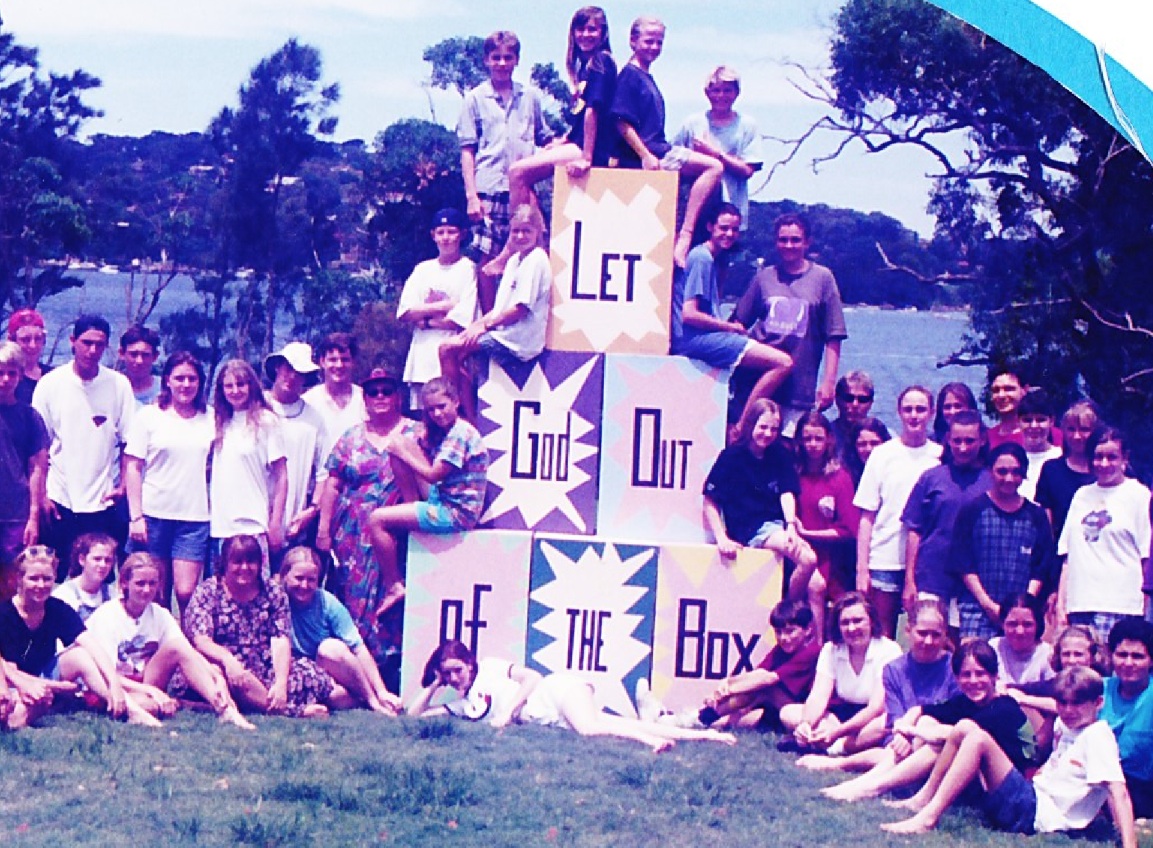


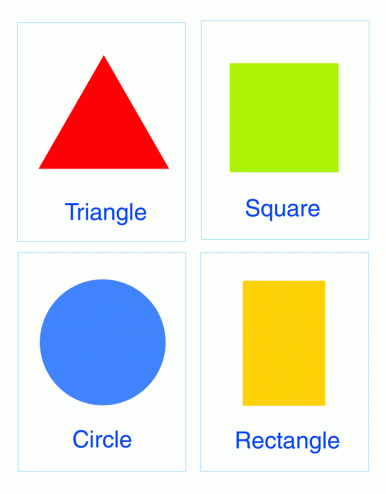

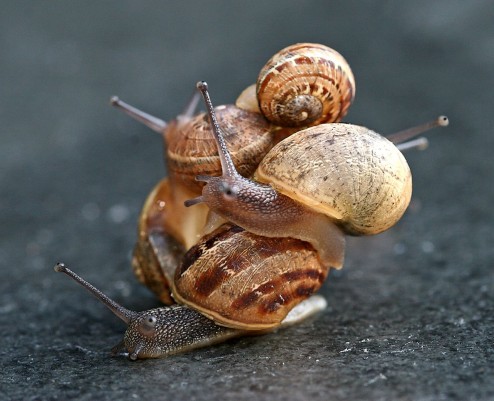



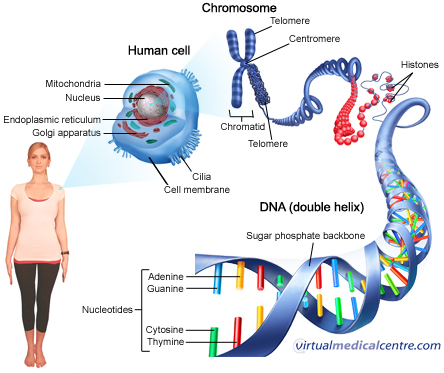





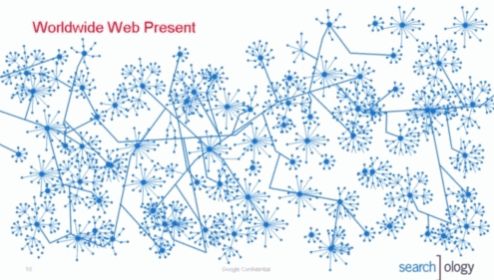





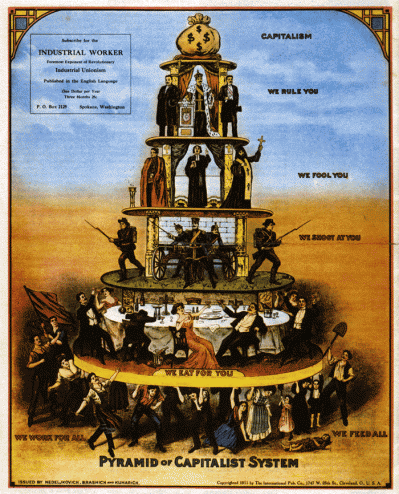
 To the Hindu caste system:
To the Hindu caste system: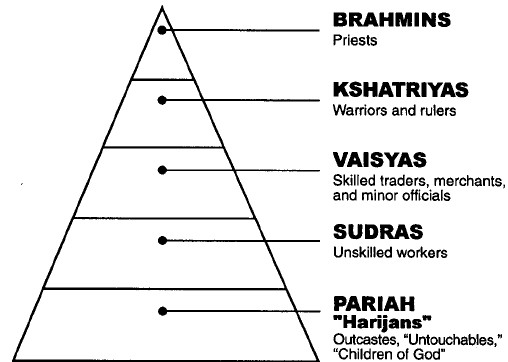
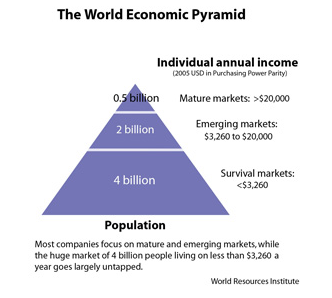
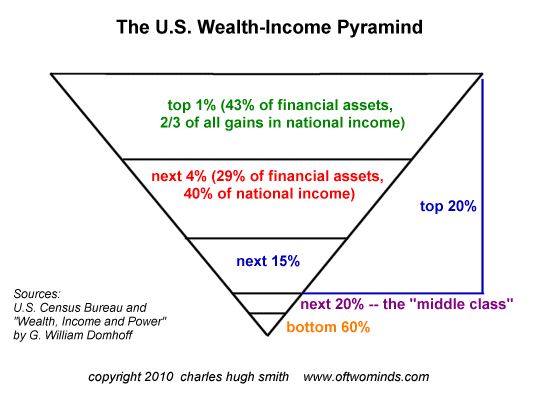
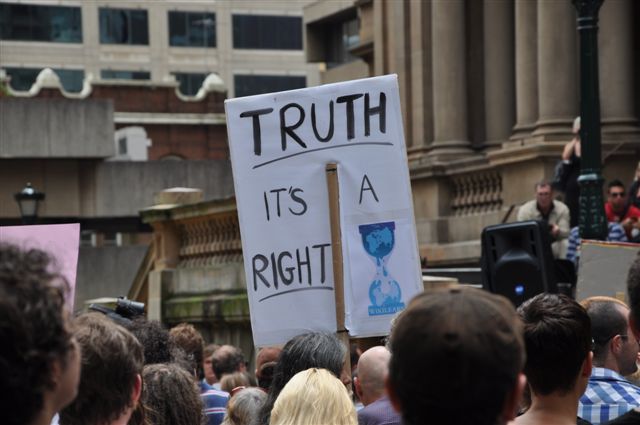
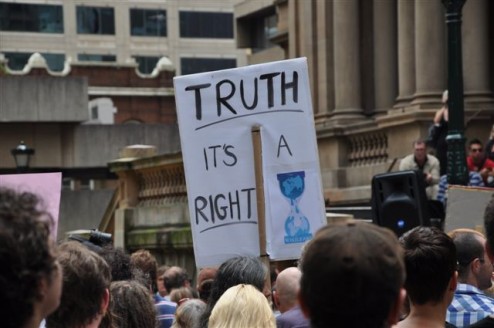 Today the Westminster Magistrates’ Court will decide the fate of Julian Assange, well at least whether or not he will get bail. And so while I haven’t even told you much about last Friday’s rally yet, I had better briefly inform any Sydney readers that there will be another rally at 530pm, again at Town Hall, today. [1]
Today the Westminster Magistrates’ Court will decide the fate of Julian Assange, well at least whether or not he will get bail. And so while I haven’t even told you much about last Friday’s rally yet, I had better briefly inform any Sydney readers that there will be another rally at 530pm, again at Town Hall, today. [1]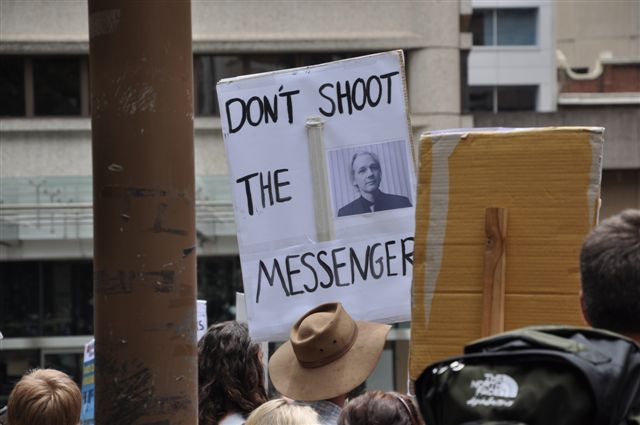
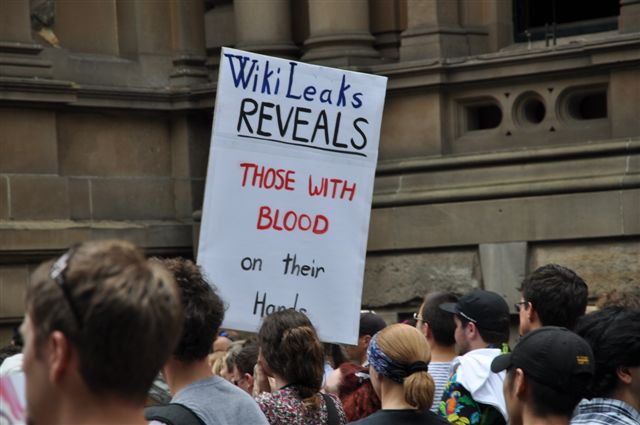

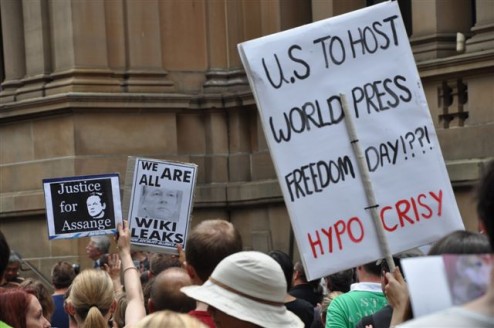 There are two sides to every story. We all know this, even if we choose to only see our side. Seeing the side of others takes empathy, a virtue that (unlike patience and many other virtues) I think I’m not half-bad at. Lucky so, given the nature of my recent social life.
There are two sides to every story. We all know this, even if we choose to only see our side. Seeing the side of others takes empathy, a virtue that (unlike patience and many other virtues) I think I’m not half-bad at. Lucky so, given the nature of my recent social life.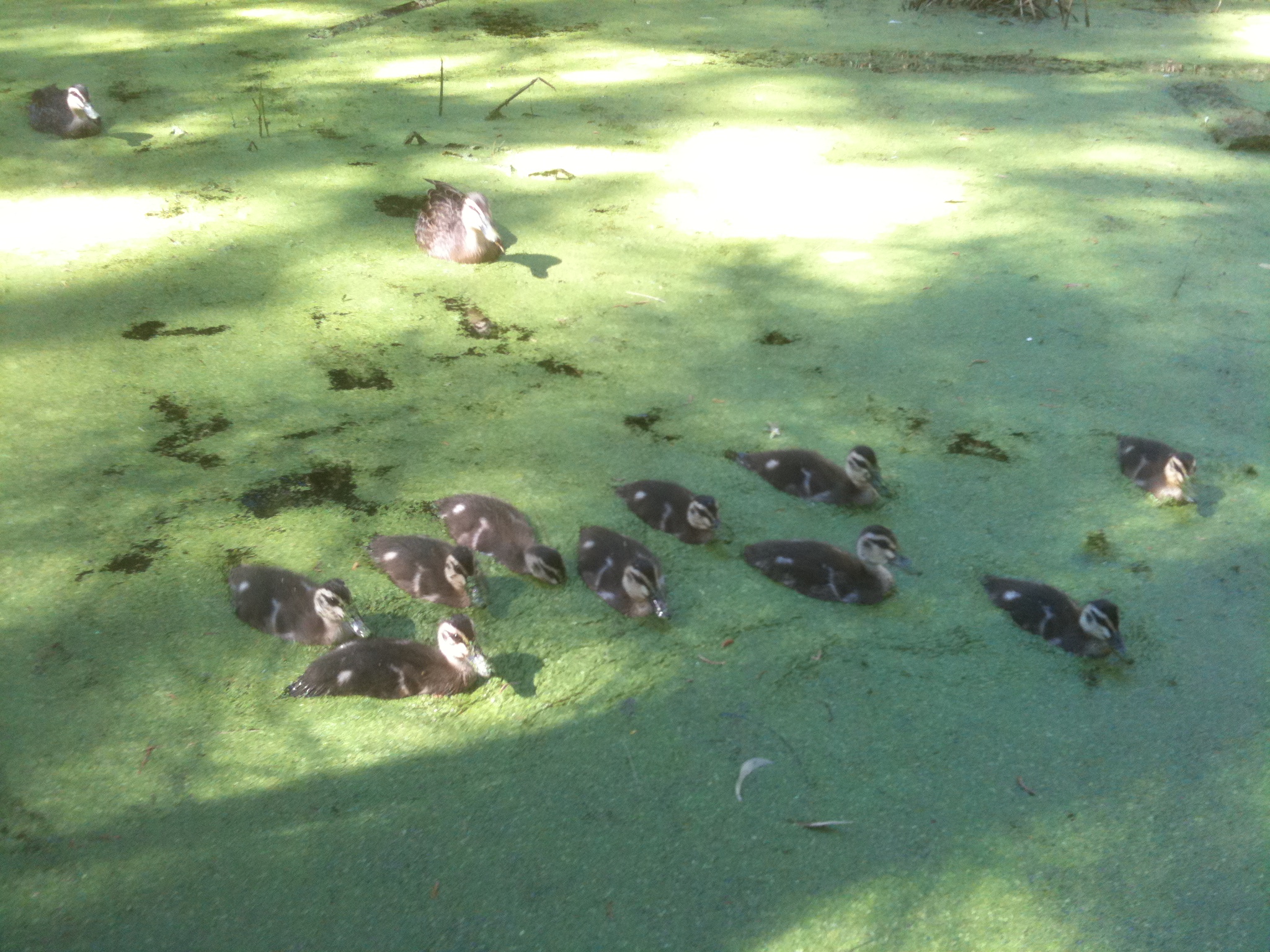

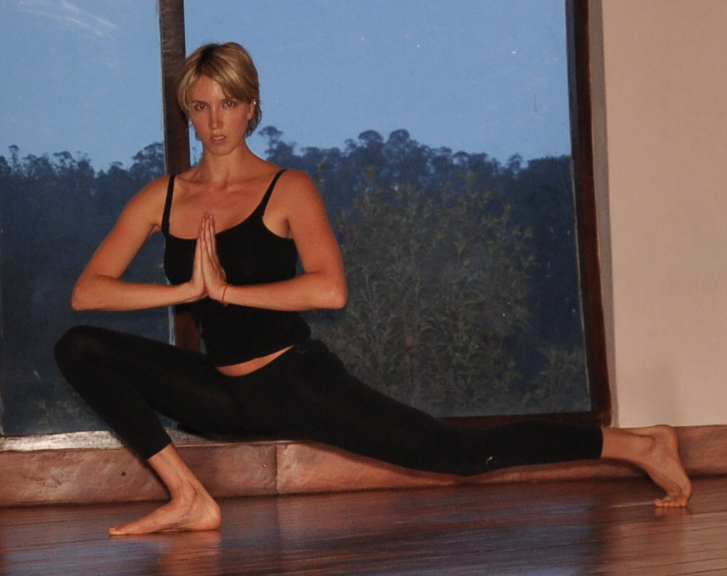
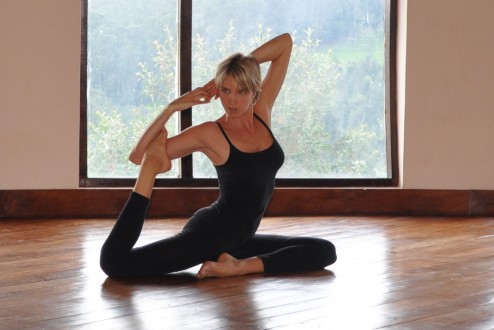 Tonight I had a decision to make: dinner with mum, PeaceBeliever Tribute to John Lennon at Oxford Arts Factory, bed (I was up late blogging last night), try to keep awake and study, or go to a yoga class. My body craved the hot room, long stretches, mental relaxation of yoga – but it would be at the cost of all the other options, and the bother of driving and parking. All of this I could be avoided if I just sit on my ass and don’t go. But I did. And I was reminded (once again) that yoga is always a good decision.
Tonight I had a decision to make: dinner with mum, PeaceBeliever Tribute to John Lennon at Oxford Arts Factory, bed (I was up late blogging last night), try to keep awake and study, or go to a yoga class. My body craved the hot room, long stretches, mental relaxation of yoga – but it would be at the cost of all the other options, and the bother of driving and parking. All of this I could be avoided if I just sit on my ass and don’t go. But I did. And I was reminded (once again) that yoga is always a good decision.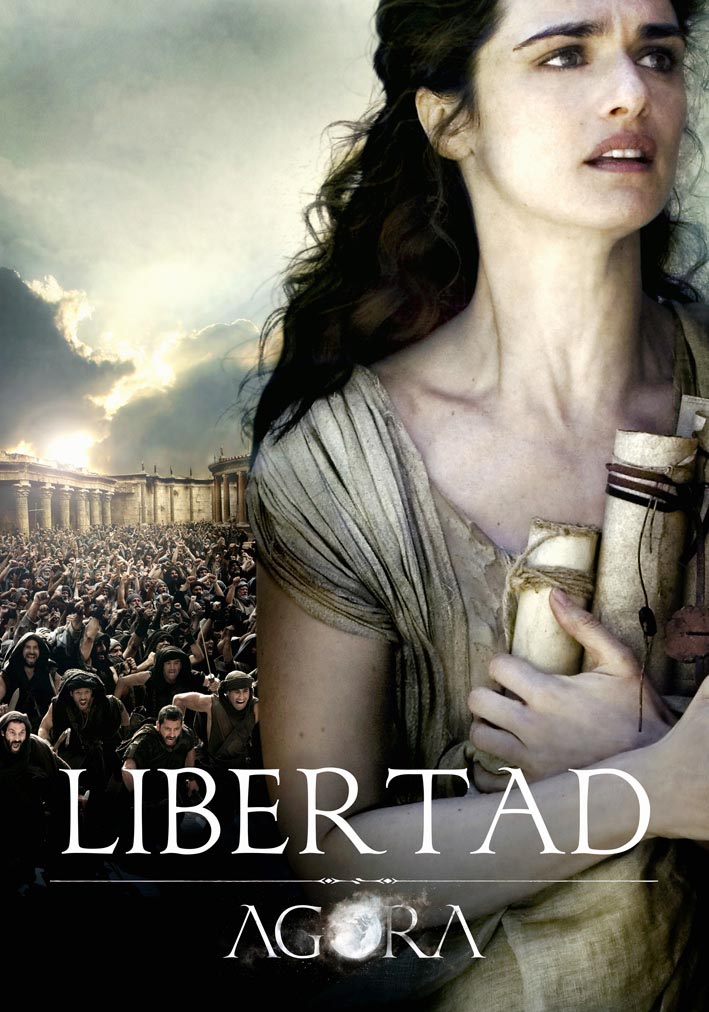
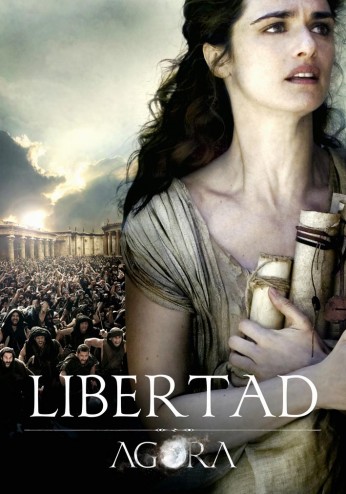 It was the burgeoning of the Dark Ages – a time where a blog like mine that questioned the “truth” would have me (like my new heroine the philosopher Hypatia was) called a witch, stripped naked, skinned alive, torn into pieces and burned.
It was the burgeoning of the Dark Ages – a time where a blog like mine that questioned the “truth” would have me (like my new heroine the philosopher Hypatia was) called a witch, stripped naked, skinned alive, torn into pieces and burned.